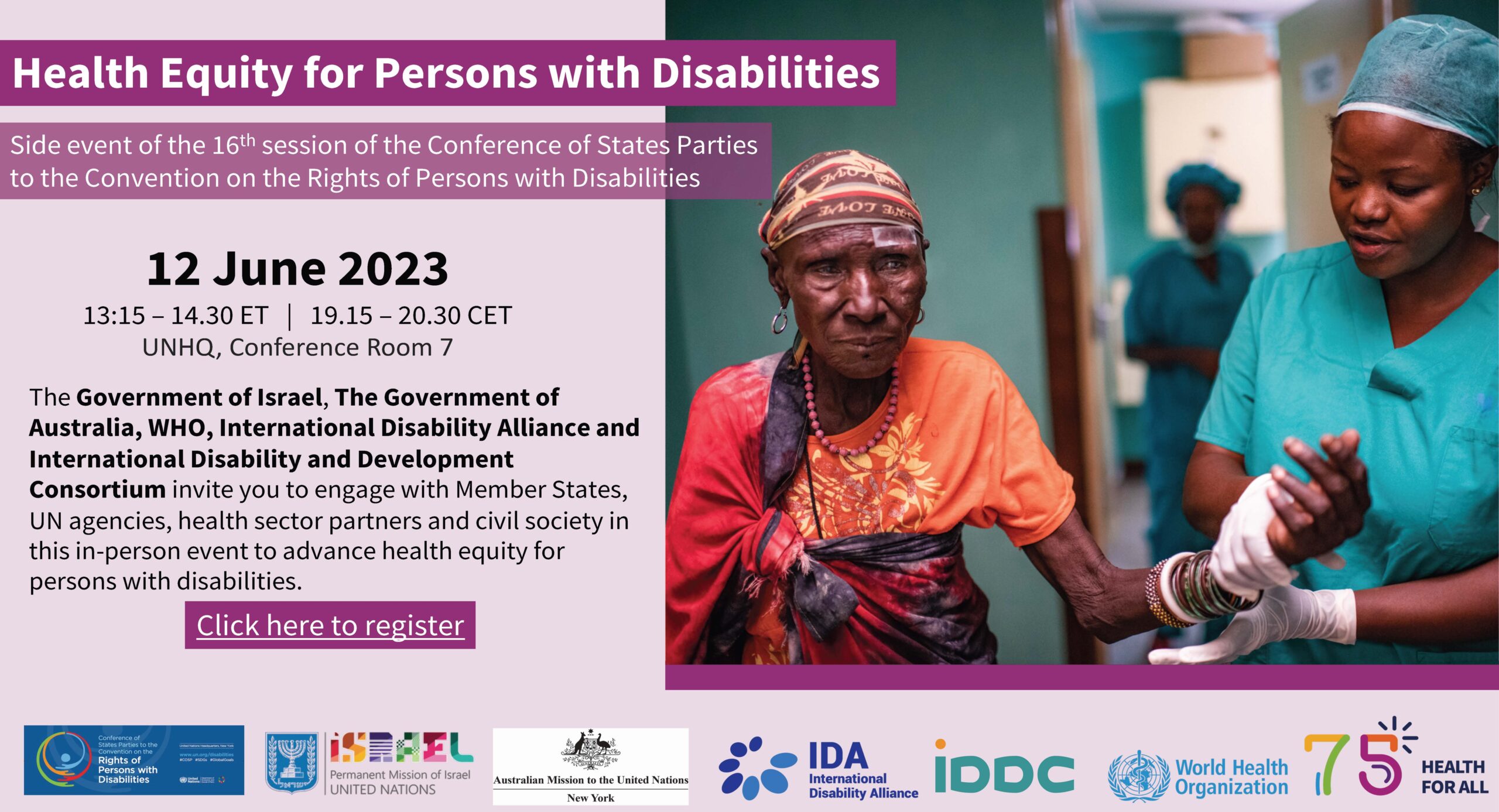Health equity for persons with disabilities
New-York (United States), Monday 12 June 2023. The World Health Organisation, together with Israel, Australia, the International Disability Alliance, and the International Disability and Development Consortium, organised a side-event on Health equity for persons with disabilities as part of the 16th Conference of State Parties to the CRPD. The event aimed at presenting the findings of the WHO Global report on health equity for persons with disabilities including a focus on the upcoming work to support countries to implement the recommendations from the report. It also sought to engage Member States, health sector partners and civil society in dialogue on the entry points to prioritizing and strengthening disability inclusion in national health agendas to address health inequities for persons with disabilities.
Connie Laurin-Bowie, the Executive Director of Inclusion International and representative of the International Disability and Development Consortium (IDDC), shed light on the experiences of individuals whose legal capacity is denied. Among the marginalized communities impacted by this issue are people with intellectual disabilities, who frequently face significant challenges in accessing healthcare and understanding vital information within the healthcare system. She highlighted in particular the human devaluing they encounter within the healthcare system. Too often, healthcare professionals direct their communication toward an assistant, parent, or a spouse, rather than engaging directly with the person themselves. This practice undermines the individual’s autonomy and denies them the opportunity to actively participate in decision-making and exercising their right to choices within their healthcare journey.
Connie reminded that among the apprehension of many organisations of persons with disabilities about working in the healthcare sector such as during the negotiation of the convention on the rights of persons with disabilities due to the prevalent perception of disability as solely a medical condition. Even today, individuals with disabilities, including those with intellectual disabilities, are often viewed as subjects of disease and disabilities. As a result, they are denied the fundamental right to access essential services, such as sexual and reproductive health and rights (SRHR). COVID-19 pandemic further exacerbated the healthcare disparities faced by individuals with intellectual disabilities. The triaging process witnessed during the pandemic underscored the urgent need to address health inequalities.
Sharing the example of Inclusion Africa work in access to healthcare, Connie elaborated on the role of civil society organisations to make healthcare services accessible to all. Civil society organisations, working alongside healthcare professionals and policymakers, can play a pivotal role in empowering individuals with intellectual disabilities for instance through the provision of comprehensive information about their rights. By ensuring that people with intellectual disabilities have access to the necessary information, they can make informed choices regarding their well-being. Civil society organizations can collaborate with healthcare professionals to enhance their understanding of disability rights and improve their communication and treatment approaches when interacting with individuals with intellectual disabilities. By working with relevant stakeholders, civil society organizations can also advocate for policy reforms and systemic changes that promote inclusivity and equal access to healthcare services.
Connie concluded her intervention reminding that Universal Health Coverage, whereby everyone can access quality healthcare services without facing financial hardship, cannot be achieved without inclusion and invited participants to follow-up on the IDDC’s recommendations.
IDDC Brief: Universal Health Coverage must leave no one behind

